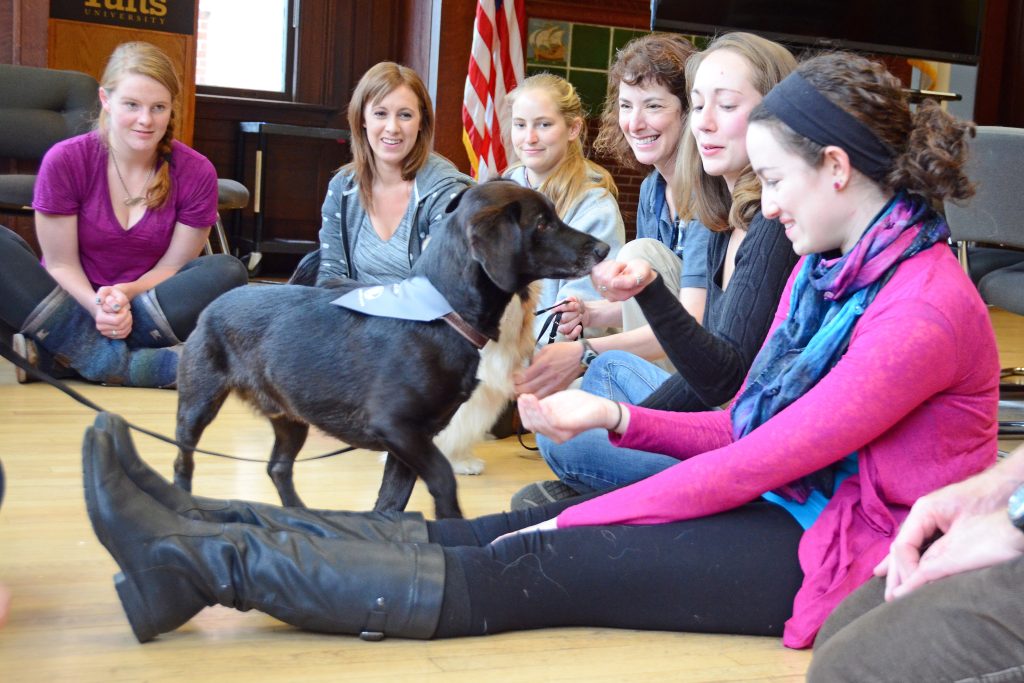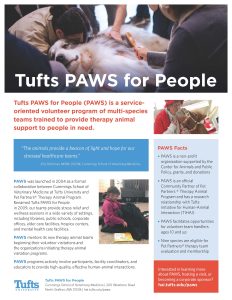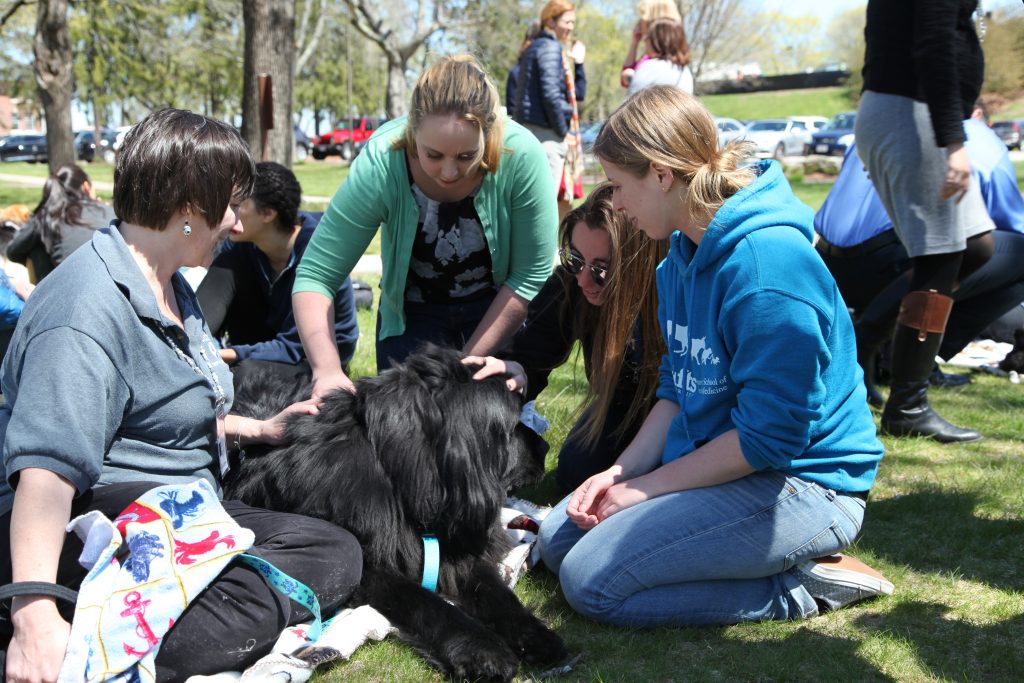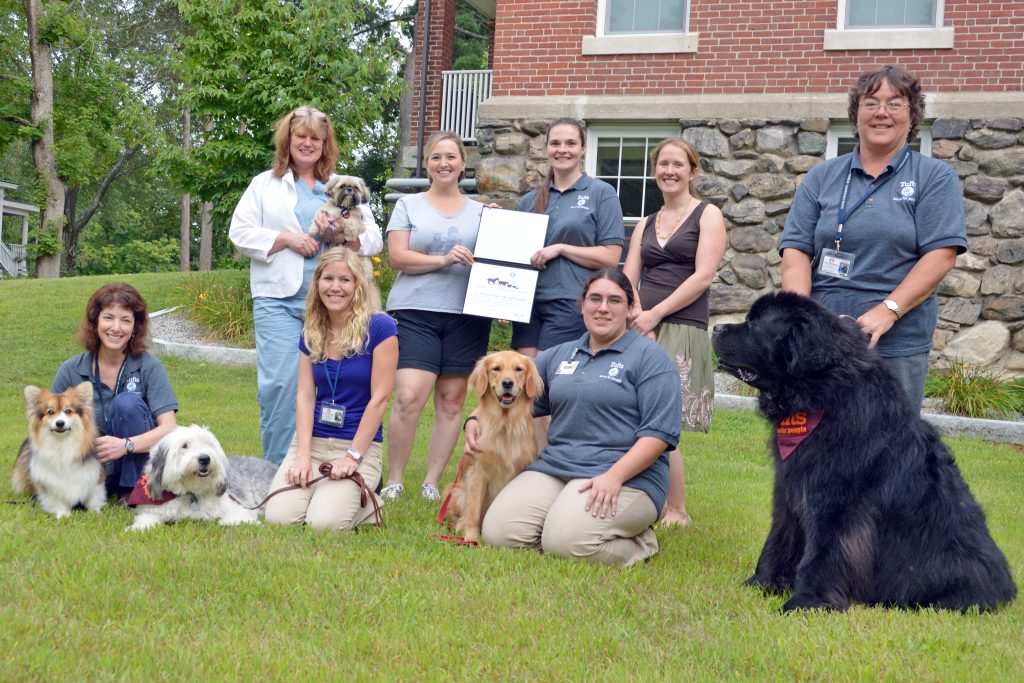
Support our group to train and mentor new volunteer teams to make a difference in the community by visiting with their animals!

Tufts Paws for People is a non-profit organization in New England associated with the Cummings School of Veterinary Medicine at Tufts University within the Center for Animals and Public Policy. Tufts Paws for People is a Community Partner of the Pet Partners® organization.
Tufts Paws for People provides education, evaluation, and mentorship for individuals looking to visit with their pet. We also provide assistance to facilities looking to start an animal visitation program, and our teams work in a variety of environments to provide safe and effective animal visitation.
At Tufts Paws for People, our volunteers work with diverse populations of people with any of the nine species of animals we register. We welcome volunteers with unique perspectives and experiences in terms of national origin, culture, socioeconomic background, ethnicity, ancestry, color, sex, gender identity and expression, education, age, languages spoken, veteran status, religion, disability, sexual orientation, and beliefs, which help us strengthen our impact.
Learn More about Tufts Paws for People
Want to get involved?
Visit! Become a registered Pet Partners® team and visit with your own animal.
Volunteer! We always need volunteers without pets to help with a variety of tasks:
- Workshops and evaluations
- Educational events
- Marketing
- Public relations
- Office help
Why work with us?
Tufts Paws for People teams are well-trained and prepared to provide effective and safe animal visitation.
Training: Members start with an 8-hour workshop provided by Pet Partners® instructors on safe and effective visitation.
Evaluation: Members must pass a rigorous Pet Partners® Team evaluation with their animal every 2 years.
Mentorship: Members are mentored by experienced Paws for People members for their first visits.
Health: All Tufts Paws for People teams are required to have:
- Annual veterinary examinations
- Current rabies vaccination
- Annual parasite testing
- Grooming within 24 hours of each visit
- Proper identification and knowledge of facility policies
- No contact with raw protein diets
Liability: All registered Pet Partners® teams carry liability insurance.
Upcoming Pet Partners® Team Evaluation dates
- 1/13/24, Grafton, MA
- 2/24/24, Grafton, MA
- 3/9/24, Grafton, MA
- 4/20/24, East Greenwich, RI
- 5/4/24, Grafton, MA
- 6/29/24, Grafton, MA
- 7/27/24, Grafton, MA
- 8/24/24, Grafton, MA
- 9/14/24, Grafton, MA
- 10/12/24, Grafton, MA
- 11/2/24, East Greenwich, RI
Evaluation registration is available through the Pet Partners website.



